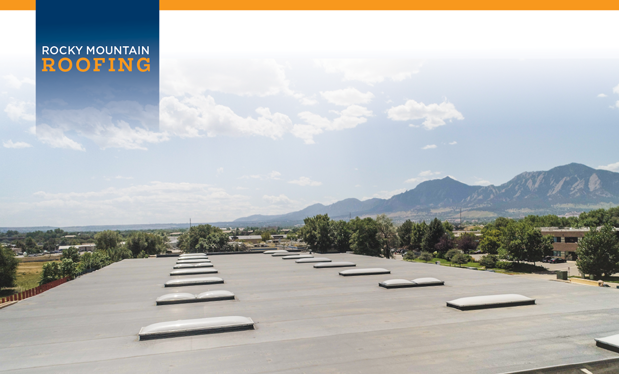OSHA increased enforcement and compliance assistance in 2019
The Occupational Safety and Health Administration conducted more inspections and completed a record amount of compliance assistance during fiscal year 2019, according to the organization’s final fiscal year 2019 statistics.
OSHA conducted 33,401 inspections—more inspections than the previous three years—addressing safety violations related to trenching, falls, chemical exposure, silica and other hazards. In addition, during fiscal year 2019, OSHA provided a record 1,392,611 workers with training regarding safety and health requirements through its educational programs, including the OSHA Training Institute Education Centers, Outreach Training Program and Susan Harwood Training Grant Program. OSHA also reports its no-cost On-Site Consultation Program identified 137,885 workplace hazards and protected 3.2 million workers from potential harm.
“OSHA’s efforts—rulemaking, enforcement, compliance assistance and training—are tools to accomplish our mission of safety and health for every worker,” says Loren Sweatt, principal deputy assistant secretary of labor for occupational safety and health. “I am proud of the diligent, hard work of all OSHA personnel who contributed to a memorable year of protecting our nation’s workers.”
DOL releases equal employment opportunity guide for contractors

|
The Department of Labor’s Office of Federal Contract Compliance Programs has released a Technical Assistance Guide designed to help construction contractors meet equal employment opportunity requirements, according to www.forconstructionpros.com.
Intended to help prevent equal employment opportunity violations before they occur, the guide reflects current regulations and provides practical, useful compliance assistance resources for contractors. A self-assessment tool is included for contractors so they can review the practices they have in place to eliminate discrimination and achieve their equal employment opportunity goals. The guide highlights best practices, provides references and reportedly will help federal construction contractors meet all their legal obligations.
The guide is available at www.dol.gov/ofccp/construction/files/constructiontag.pdf.
New York law aims to protect homeowners from roofing scams
.jpg)
|
New York Gov. Andrew Cuomo signed the Storm Chaser Bill (S. 1405/A. 7531) into law Nov. 25, 2019. Sponsored by Sen. David Carlucci (D-N.Y.), the legislation is designed to protect consumers from unscrupulous roofing contractors who prey on homeowners and perform shoddy work after natural disasters.
The legislation takes effect six months after being signed into law and enacts comprehensive consumer protections for homeowners. It mandates roofing contractors in New York must have a written contract with a homeowner and allow the homeowner to cancel a contract within three days if a repair claim is denied. The legislation also prohibits roofing contractors from advertising rebates toward the cost of a deductible or requiring a deposit of more than 50% of the total cost of the job.
“New York must always protect homeowners, especially after a natural disaster when they are most vulnerable to unscrupulous contractors,” Carlucci says. “This legislation will hold contractors accountable and stop scammers from ripping off homeowners. Thank you to Governor Cuomo for signing this bill into law.”
After Hurricane Sandy, the Governor’s Office of Storm Recovery confirmed 171 cases of contractor fraud, which resulted in millions of dollars stolen from New York homeowners.
Music via headphones on job sites is legal but discouraged

|
Although a construction worker who wears headphones to listen to music on a job site does not violate federal safety rules, the Occupational Safety and Health Administration warns the practice could pose a safety hazard.
In a new guidance letter, OSHA’s Acting Enforcement Director Patrick Kapust said there is no specific OSHA regulation prohibiting the use of headphones on a construction site, but “listening to music may produce a safety hazard by masking environmental sounds that need to be heard, especially on active construction sites where attention to moving equipment, heavy machinery, vehicle traffic and safety warning signals may be compromised.”
Safety professionals tend to agree. Steve Smithgall, senior vice president for safety and operations at Dallas-based general contractor Balfour Beatty Construction’s U.S. work sites, told Bloomberg Law the company has internal rules banning workers from listening to music on the job. He says the ban can be difficult to enforce because earbuds have become less noticeable and people can listen to music on their smartphones. The company allows workers to wear earmuffs and earbuds designed to protect against loud noises, but Smith says those devices allow workers to hear conversations and approaching machinery.
Attorney Jim Vines, head of Atlanta-based King & Spalding LLP’s occupational safety practice, told Bloomberg Law an employer that permits a construction worker to listen to music via headphones could be vulnerable to a general duty clause violation if an accident is linked to a worker listening to music who could not hear warning signals. He also says allowing loud music on a job site could be included in a worker’s hearing loss claim as a work-related injury.
In 2017, OSHA cited a contractor after a worker who had been listening to music through earbuds connected to a mobile phone was crushed to death by a bulldozer as it backed up. The company settled the case and paid an $11,407 fine.
Illinois prevailing wage law is not preempted by federal law
On Dec. 2, 2019, the Appellate Court of Illinois, Third District, ruled an Illinois law requiring employers to pay fringe benefits to employees working on public projects is not preempted by the federal Employee Retirement Income Security Act.
The court said the Illinois Prevailing Wage Act, which sets minimum wage and benefit levels for workers on public works projects, has long been regulated by the states and ruled it does not have a sufficient connection with an Employee Retirement Income Security Act benefit plan.
The decision is a win for the Illinois labor department, which sued Lion Construction LLC, Momence, Ill., alleging violations of the prevailing wage law. The department claimed Lion Construction did not make requisite fringe benefit contributions on behalf of more than 25 workers.
Lion Construction argued the prevailing wage act claim was preempted by the Employee Retirement Income Security Act because it involved salary deductions the company sent to an Employee Retirement Income Security Act-covered benefit plan. Although a trial court ruled for Lion Construction, the appellate court reversed the decision, saying the trial court incorrectly relied on a 1992 decision.



